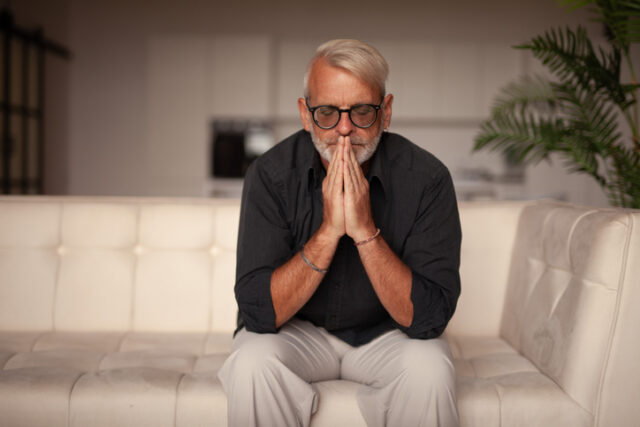Downsizing sounds great on paper—less space to clean, fewer bills, a fresh start in retirement—and for a lot of people, it really is the right move.

However, others find out the hard way that smaller doesn’t always mean simpler. When you rush into a major change without thinking through the emotional or practical side of it, you can end up with a bunch of regrets and a nagging sense that you didn’t fully think it through. Here are some of the things retirees often wish they’d considered before shrinking their space too fast.
1. Letting go of too much, too soon

In the excitement (or stress) of moving, a lot of people go into decluttering mode and get rid of things they later wish they’d held onto. Family heirlooms, hobby equipment, or sentimental items that didn’t “fit” the new space can suddenly be missed more than expected. What feels like clutter during a rushed move can turn out to be part of your identity or history. Once it’s gone, it’s hard to get back, and even harder to explain why it suddenly matters so much now.
2. Underestimating how much storage you actually need

People think they’ll magically become minimalist once they move into a smaller place, but habits don’t change overnight. Suddenly, the new flat feels cramped, and there’s nowhere to put anything. Closets are overflowing, surfaces are cluttered, and you’re left frustrated instead of free.
It’s not just about square footage. It’s about realistic living. If your hobbies, seasonal gear, or daily routines require space, cramming yourself into a tighter spot might make day-to-day life harder instead of easier.
3. Feeling emotionally disconnected from the new space

That smaller home might look perfect in photos, but it can feel oddly cold or impersonal at first. The memories made in the old house—birthdays, family visits, even quiet routines—are hard to replicate right away. Some people downsize for practicality and end up feeling rootless. It takes time to feel settled somewhere new, and that part’s often glossed over when you’re in decision mode.
4. Losing the ability to host people comfortably

One common regret? Not being able to have guests over without stress. Downsizing might mean no spare room, no decent seating, and no way to entertain like you used to. That change can sneak up on you, especially around holidays or birthdays. For retirees who value family time or enjoy spontaneous get-togethers, this can turn a downsized home into a bit of a lonely one. You need to be in a space that allows you to live the way you want to live.
5. Realising it’s not as affordable as expected

People assume smaller always equals cheaper, but that’s not always the case. Sometimes you’re trading mortgage payments for high monthly fees, moving costs, or renovation work the estate agent didn’t warn you about. Add in the expense of replacing furniture, installing storage, or commuting longer distances if you’re further out, and suddenly the “downsized” life isn’t as budget-friendly as promised.
6. Being too far from family or friends

That cute little bungalow in a quiet village sounded peaceful, until you realise your closest friend is an hour away and your kids aren’t popping round nearly as often anymore. Downsizing can unintentionally put you in social isolation mode. Being close to people you care about matters more as you get older, not less. It’s easy to overlook that when you’re laser-focused on floor plans and garden sizes, but the distance can hit hard once the novelty wears off.
7. Missing your old neighbourhood routine

You might not have loved every neighbour on your old street, but there’s often comfort in the familiar—the shopkeeper who knows your name, the postie who gives your dog a treat, the walking route you’ve taken for years. When you downsize quickly, you sometimes underestimate how grounding those small, repetitive comforts can be. Starting over in a totally different area can feel like more of a loss than a fresh start.
8. Regretting how the decision was made

Some retirees feel like they got talked into downsizing by a partner, kids, or even a well-meaning financial adviser. It’s easy to nod along when everyone’s saying it’s the smart thing to do, but if your heart’s not in it, that disconnection tends to grow. Major life changes work best when you feel ownership over the decision. If the move was more about pleasing other people or ticking a box, the regret can linger longer than expected.
9. Giving up on long-standing hobbies

Woodworking, gardening, crafting, baking—these aren’t just hobbies, they’re part of your identity. However, downsizing often means ditching your workshop, your greenhouse, or even your full-sized oven to fit the new space. It’s only after the move that many realise they’ve boxed up part of who they are. Space constraints don’t just shrink your square footage. They can shrink your lifestyle, too.
10. Struggling with accessibility

In theory, downsizing should make life easier—fewer stairs, less maintenance, simpler layout. However, not all “small” homes are actually senior-friendly. Some people trade in their practical house for a trendy flat with a lift that breaks down weekly or a bathroom they didn’t realise is hard to navigate. What looks lovely during a viewing doesn’t always hold up when you’re dealing with creaky knees, daily routines, or safety concerns. A bit of foresight goes a long way here.
11. Feeling like they rushed it

Downsizing can become a whirlwind of decisions, often triggered by retirement, health issues, or financial pressure. However, if you rush it, you don’t always get time to emotionally process the change or plan properly for what comes next. Many retirees say they wish they’d taken more time. Done a few trial stays in smaller spaces, or tested the idea with a slower move-out plan. Regret often comes not from the size, but from the speed.
12. Missing the garden more than expected

You think you’re ready to give up mowing and weeding until you realise how much you miss stepping outside with a coffee, pulling up a chair in the sun, or growing your own herbs. Communal outdoor space just doesn’t hit the same way. Even a tiny patch of private garden can become something deeply missed. The connection to nature, the rhythm of the seasons—it’s not just about greenery, it’s about grounding.
13. Realising they weren’t emotionally ready

Downsizing can trigger unexpected grief. You’re not just leaving a house—you’re leaving a version of life that spanned decades. That nostalgia, that sense of identity, that comfort don’t just disappear once the keys are handed over. Some people expect to feel lighter, but end up feeling lost. It’s okay to need time to mourn a space that held so much of your story. That doesn’t mean downsizing was the wrong choice. It just means you’re human.




